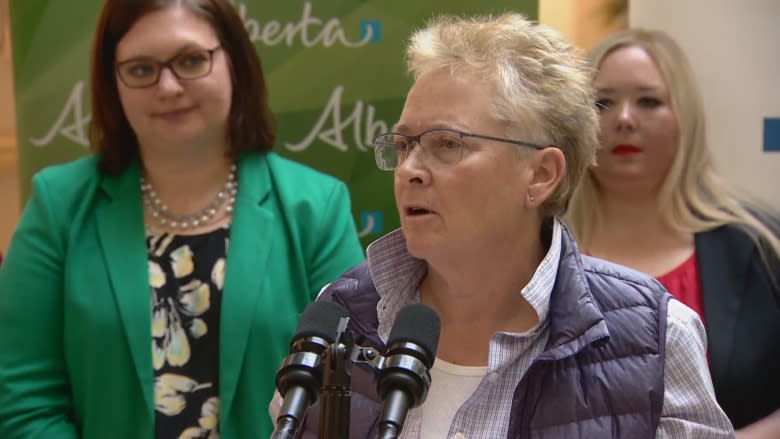Supervised consumption sites in Edmonton, Lethbridge get federal approval

Health Canada has approved four supervised drug consumption sites in Edmonton and one site in Lethbridge, the Alberta government announced Wednesday.
Three Edmonton sites will be operated by Access to Medically Supervised Injection Services Edmonton (AMSISE) at the Boyle McCauley Health Centre, Boyle Street Community Services and the George Spady Centre.
Alberta Health Services will operate an in-patient program at the Royal Alexandra Hospital in Edmonton starting next spring. This will be the first hospital-based program in North America.
ARCHES will run the consumption site in downtown Lethbridge. It will be open in early 2018.
The Calgary site at the Sheldon M. Shumir Centre is expected to receive federal approval by the end of October.
The three community-based sites in Edmonton will open later this year or in early 2018. Shelley Williams, chairperson of AMSISE, said they will be "micro-sized" and established within existing community agencies.
"These three established community-based organizations ... already have trusting relationships with people who are currently using drugs and in unsafe environments," she said.
Williams said the programs will link people with services and supports. It will benefit the surrounding neighbourhoods, she said, because people will be injecting indoors and not leaving used needles behind.
Stacey Bourque, executive director of ARCHES, said visits to Lethbridge emergency rooms due to opioid poisoning are more than 25 per cent higher than the provincial average.
She said youth under 20 represent 8.1 per cent of overdose deaths in Lethbridge and doctors are prescribing opioids at a rate that is 50 per cent higher than the provincial rate.
"We do have some issues in the south that are very specific to our area," she said.
Overdose rates high in inner city
Some residents and businesses in the inner city, particularly in Chinatown, opposed locating the consumption sites in their neighbourhood.
But associate health minister Brandy Payne said the services have to go where people need them.
"The rates of overdose within inner-city populations have been quite high," Payne said.
She said the three community sites allow services to be spread out throughout the neighbourhood and prevent a concentration of clients in one location.
Alberta Health will provide money to operate the programs and pay to modify the facilities.
The three AMSIS sites in Edmonton will cost $2.7 million a year to operate. Costs for the other proposals are still being finalized.
Payne said she expects to see more applications for supervised drug consumption sites. Evaluations on Medicine Hat, Grande Prairie, Fort McMurray, Red Deer and Edson have been prepared for the province's Opioids Emergency Response Commission.
'No family is immune'
Petra Schulz stood behind Payne during the announcement.
She hugged a photograph of her son, 25-year-old Danny Schulz, who died of a fentanyl overdose in 2014.
"I wouldn't have missed this day today, it was very important to me," Schulz said after the announcement.
"People like my son and the many others that are still struggling are finally getting the recognition they deserve ... If he would not have been alone when he overdosed, he could have been saved."
After her son's death, Schulz co-founded Moms Stop the Harm, a national coalition for families affected by substance abuse.
"No family is immune from the opioid crisis," Schulz said.
Members of Schulz's coalition advocate for better treatment of drug users, including supervised consumption sites. Wednesday's announcement was a milestone for the group, Schulz said.
So far this year, 315 people have died from fentanyl-related overdoses in Alberta.

